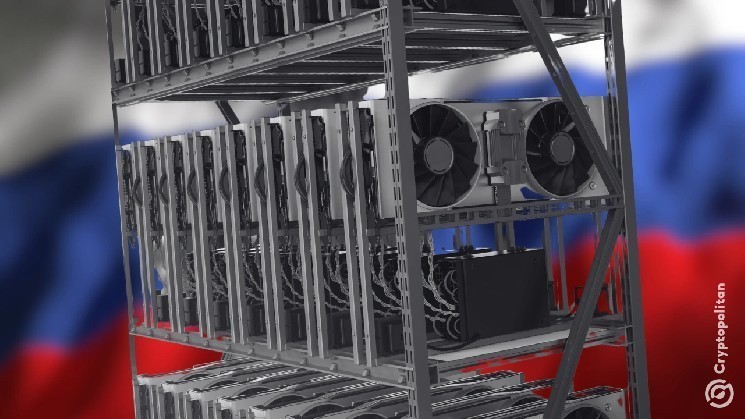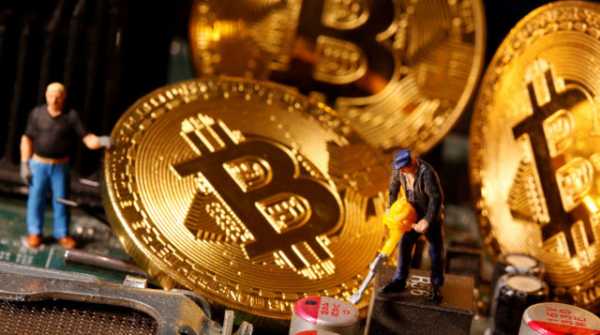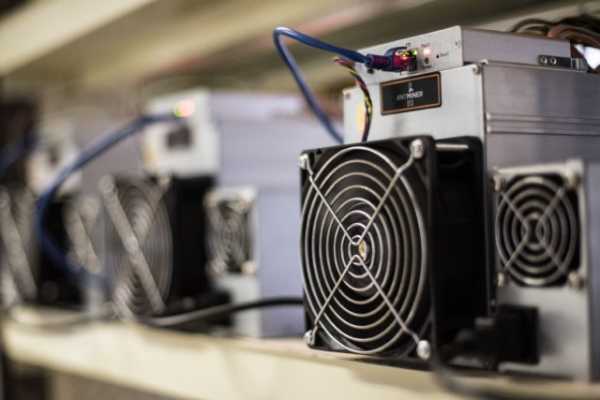Russia Puts AI Above Bitcoin as Data Center Mining Ban Pending

Given the growing interest in computing power to meet the demands of digitalization and artificial intelligence, Russia plans to ban cryptocurrency mining in data centers.
A bill prepared at the behest of President Putin and aimed at increasing Russia's capabilities in big data processing and artificial intelligence development has added provisions banning digital currency mining activities in such institutions.
Russian government to ban cryptocurrency miners from accessing data centers
Russian authorities are set to ban cryptocurrency mining in data centers. The main goal of the move is to prevent Bitcoin miners from taking advantage of advantages that should boost Moscow's potential in the race for artificial intelligence, such as access to cheap electricity.
The corresponding changes were made to the bill concerning the priority development of data processing centers. According to media reports, these amendments were added before the second reading in the State Duma this week.
The bill introduces new provisions into several laws that have already been finalized by legislators, the business news agency RBC reports, citing a representative of the Russian government apparatus and Deputy Prime Minister Dmitry Grigorenko, who is responsible for the regulatory framework.
In the updated legislation, data centers are now defined as communication facilities. They will be included in a special register maintained by the Ministry of Digital Development, Communications and Mass Media of the Russian Federation.
The article explains in detail that registered data centers will be prohibited from installing cryptocurrency mining infrastructure and conducting related activities. The Duma is expected to vote on the proposal by the end of this month, according to a source familiar with the process.
The data centers will be given preferential electricity rates to reduce operating costs, as well as expedited connections to the power grid to avoid bureaucratic delays, the official said — options that have been unavailable to cryptocurrency mining companies since Moscow legalized their activities last year.
A government spokesman explained that digitalization and the development of artificial intelligence (AI) require the storage and processing of large volumes of data, and this requires increasing the number and capacity of data centers, specifying:
“Transparent and clear regulation is the first step. We will legislate that a data center is a communications facility, not just a server room. Clear rules will create a basis for additional support measures.”
Russia May Start Fighting Cryptocurrency Miners
The preferential regime for data centers was introduced at the behest of Vladimir Putin, who instructed the government to develop support measures for this industry back in 2020. The bill was submitted to the Duma the following year and adopted in the first reading in 2022.
However, the crypto mining industry, regulated by a law signed by the Russian President in 2024, has faced a very different attitude from both federal and local authorities. Since that decision was made in 2024, the activity has been banned in about a dozen territories, from the Far East to occupied Ukraine.
Speaking at a development forum last week, Putin explained the restrictions on mineral extraction that will be in place for the next six years in some parts of the country as a need to use Russia's resources wisely. He added, according to the Kremlin press service:
“We recently rejoiced at the surplus of electricity in some regions. But then mining started happening there, and governors started complaining to me… We had to make certain decisions.”
Cryptocurrency miners, who exploit low, often subsidized electricity rates in regions such as the Irkutsk region and Siberia, have been accused of turning excess power into a shortage, although some requests from regional officials for a ban have been rejected by the Moscow executive branch, citing the risk of reduced budget revenues and energy income.
The government's latest measures to crack down on Russia's mining sector and address another problem — the lack of computing power — are likely to create new difficulties. For example, the largest data center in the Irkutsk region belongs to mining giant BitRiver.
According to blockchain, energy and digital finance analyst Oleg Ogienko, if the law is adopted in its current form, it will likely harm not only the mining sector, but also the data center industry. In an interview with local news portal IrCity, he noted that a number of data center operators have installed mining equipment on their sites and predicted that the new rules will lead to financial losses for these companies.
Source: cryptonews.net



